The nature of web learning and internet education is very overwhelming. You start reading an article about a specific topic, get distracted by a video on the subject, and get’s redirected to a different article that tells you that the first article that you read was wrong all along. We reached out to the Codemotion community and asked for books and blogs you’d recommend to fellow devs (with the proviso of no shilling). We got a really huge response, let’s take a look:
The Consortium for Information and Software Quality (CISQ) (Blog)
“Not an easy or a funny read, but it provides a wealth of information on software quality. Example: An eye opener is to see that roughly 10% of the GDP was spent in the US 2018 because of insufficient software quality (find it in a CISQ whitepaper). You can find a list of good resources provided by the CISQ.”
– Frank Fischer, Developer Relations at DeepCode
Algorithms Illuminated by Tim Roughgarden
“This is a series of books based on Tim Roughdarden’s Coursera/Stanford online course, which I enjoyed a lot. One of the good things about it comparably to other algorithm books is that it’s not linked to any programming language and uses pseudo-code.”
-Nikolai Kovalenko, Senior Backend Engineer, Humanitec
Wizard Zines by Julia Evans

“Julia’s zines are absolutely the best basic educational material on many tech concepts. My favorite zines are the ones about SQL, HTTP, Git and Command line tools. By breaking down, admittedly, sometimes confusing tech concepts, Julia helps beginners and advanced developers alike to understand these concepts very easily and in a very short time.
Over the years I have spent a lot of money on educational WebDev material and nothing comes close to Julia’s zines in terms of educational value. All zines bundled cost 78$ and a single zine costs 12$. Julia regularly gives them out for free on Twitter. I hope she creates a lot more of them!
Her personal blog covers a lot of different topics. Among them are computer tools, networking issues, containers, machine learning and Linux.”
– Sarah Petrova, Software Engineer at Intel & Co-founder of Techtestreport.
The DevOps Handbook by Gene Kim, Jez Humble, Patrick Debois, John Willis
“My initial thoughts to what I would recommend revolved around a specific language. But then I took a look at my bookshelf and found a gem that should be valuable for anyone that develops software, no matter the language or framework.”
– Alex Miller, Senior software engineer, Uphail
Learn to Code HTML and CSS by Shaw Howe

“It’s a great book, conceptual and in-depth and very easy to follow. I still find myself using it from time to time when I’m stuck.”
– Noman Nalkhande, WP Adventure
Introduction to Algorithms by Thomas E. Cormen
“Reading this book, most of the algorithms it described were quite familiar. However, reading how those algorithms were explained and supporting evidence it brought up helped me to better understand how they work, how and why they were derived. If you ever need a foundation book to call back on when working with algorithms, this will be the one”
– Michael Astashkevich, CTO, Smart IT
Poignant Guide
‘A book and also a blog, I picked it because it’s such an unconventional book for learning programming. The mind behind this book is a strange and crazy one, and while I am still not sure if I learned any Ruby from it, I learned that a technical book can be any format it likes.”
–Chris Ward, Freelance Technical Communicator
Intercom (Blog)
“The blog has a wealth of knowledge to share for devs and non-devs alike. No matter what technologies you work with, Intercom always shares best practices that you can apply in your day-to-day tasks.”
– Michael Astashkevich, CTO, Smart IT
24 Deadly Sins of Software Security: Programming Flaws and How to Fix Them by Michael Howard, David LeBlanc and John Viega
“As software developers, we don’t always consider how secure our code is when coding. We often rely on external tools to spot any security vulnerabilities in our code, but even the best tools can’t detect every case. 24 Deadly Sins of Software Security is a straightforward book that contains examples of coding mistakes developers make and how to avoid/fix them. For developers who work in an industry where they handle very sensitive data, this is a must-read.”
-Mark Soto, Software Developer, Cybericus
Flavio Copes (blog)
“Flavio Copes writes a blog post every single day. On his blog you can find endless content like handbooks, courses, and tutorials. Some of the posts are more like snippets but can still be really helpful not only to beginners, but advanced Web Developers also.
His React handbook still offers a lot of value to me. Even after five years of WebDev experience, I am still coming back to it to look up stuff. It is free, he is only asking for your email for his newsletter in exchange, which also contains a lot of interesting content.”
– Sarah Petrova, Software Engineer at Intel & Co-founder of
Techtestreport.
Learning Web Design: A beginner’s guide to HTML, CSS, Javascript, and Web
Graphics by Jennifer Niederst Robbins
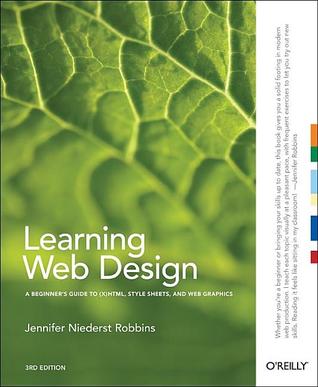
“A very well written book with tons of exercises to keep you busy and hone your coding skills.”
–– Noman Nalkhande, WP Adventure
Other blogs and YouTube recommendations
- The Coding Train YouTube Channel, with several interesting coding challenges and explanations
- David Walsh’s Blog, written by a respected developer at Mozilla
- WebDesignerDepot
- Smashing Magazine
- Toptal blog
- CSS-Tricks
“These are some of my favourites, and I find them extremely useful and informative.”
– Gustavo Pezzi, Computer science professor at BPP University London, and a fellow of the UK Higher Education Academy. Founder of Pikuma.




